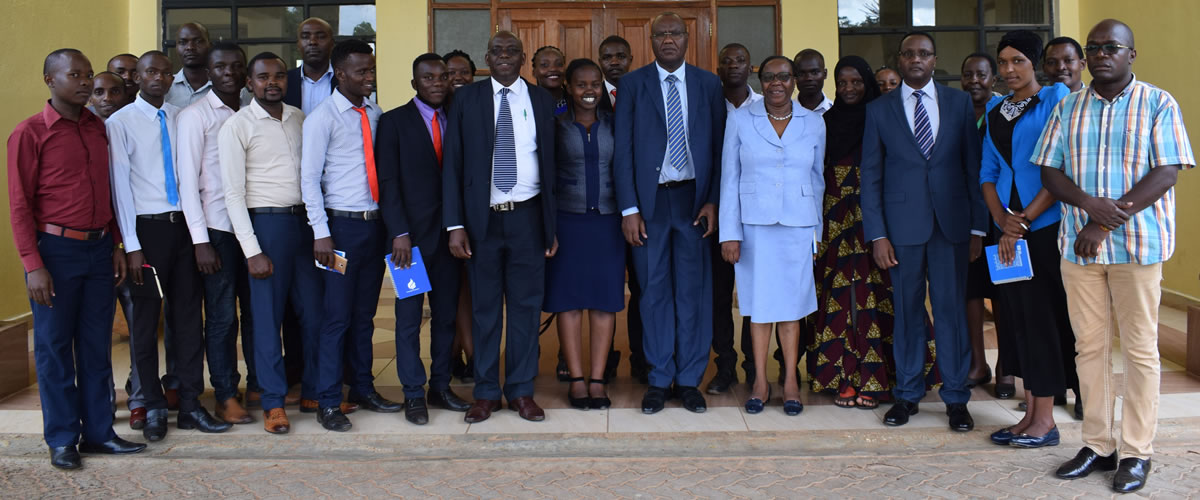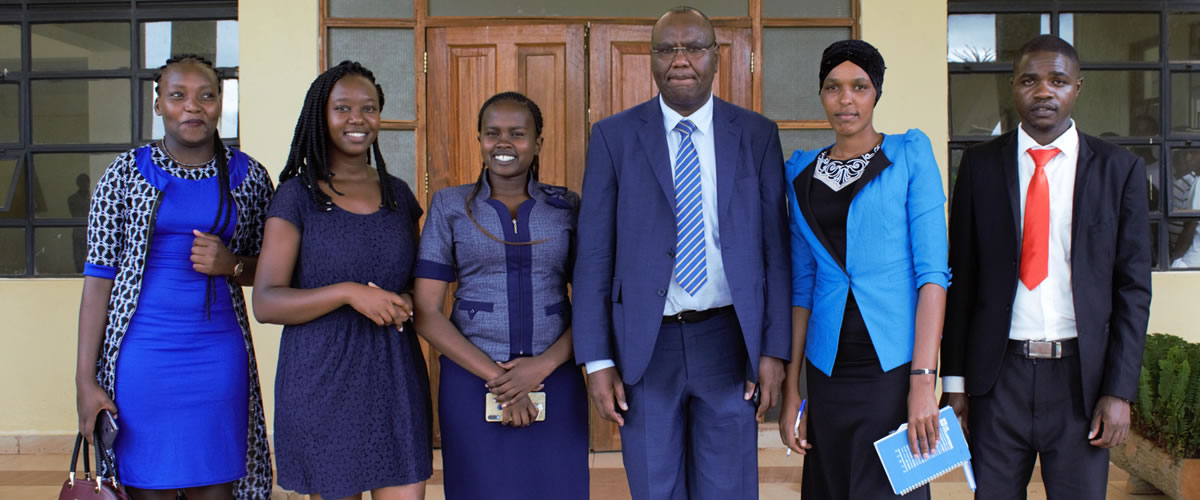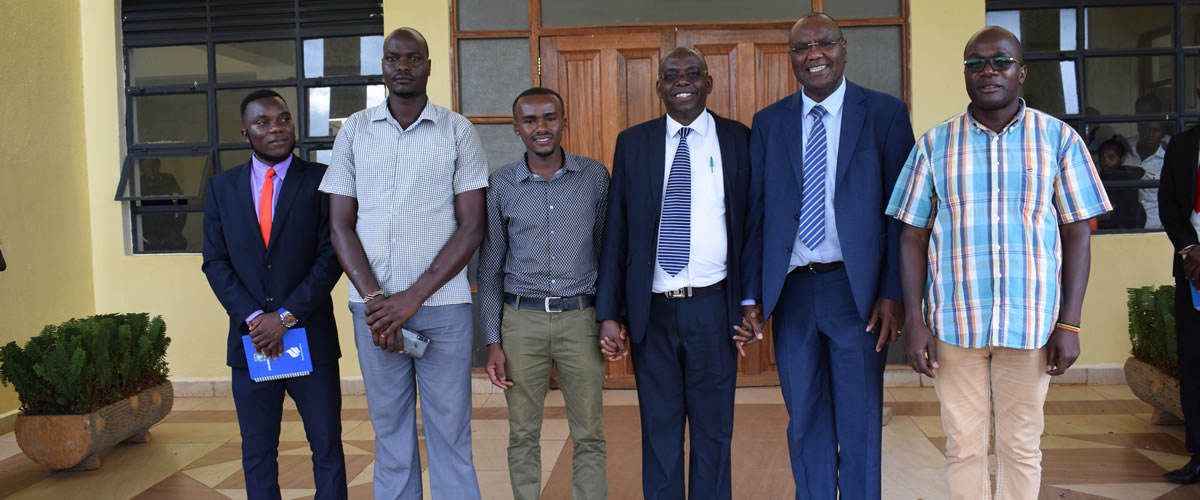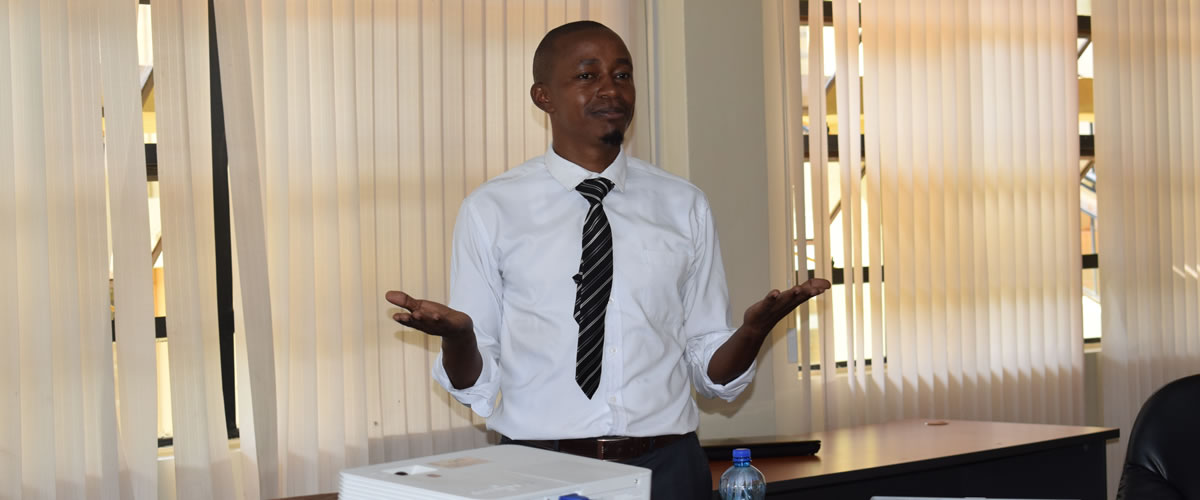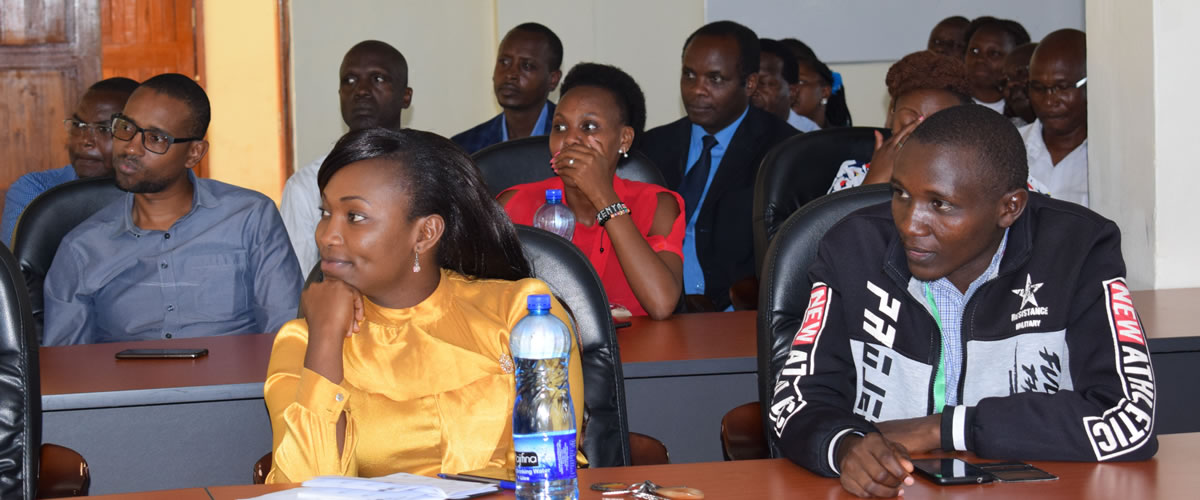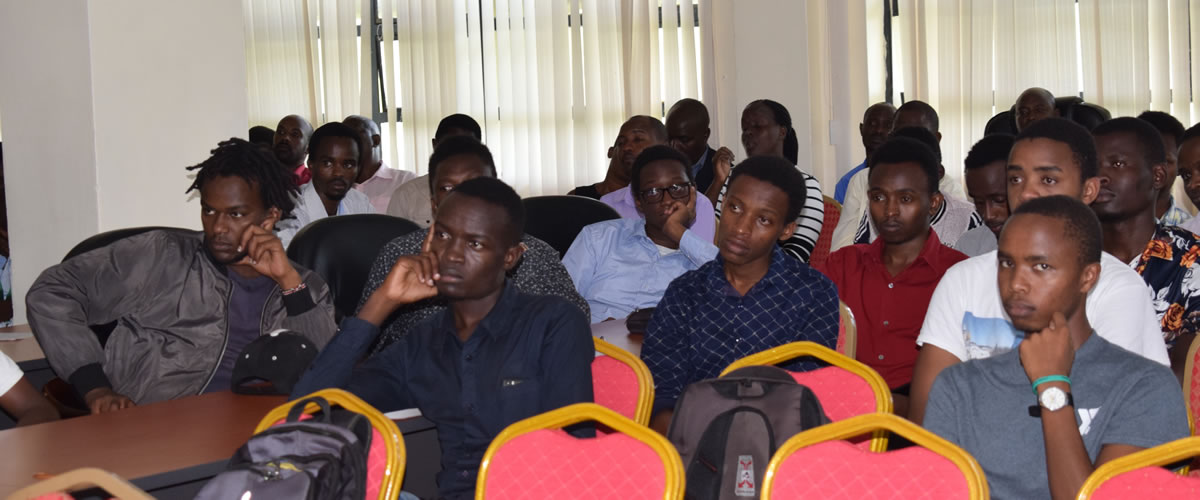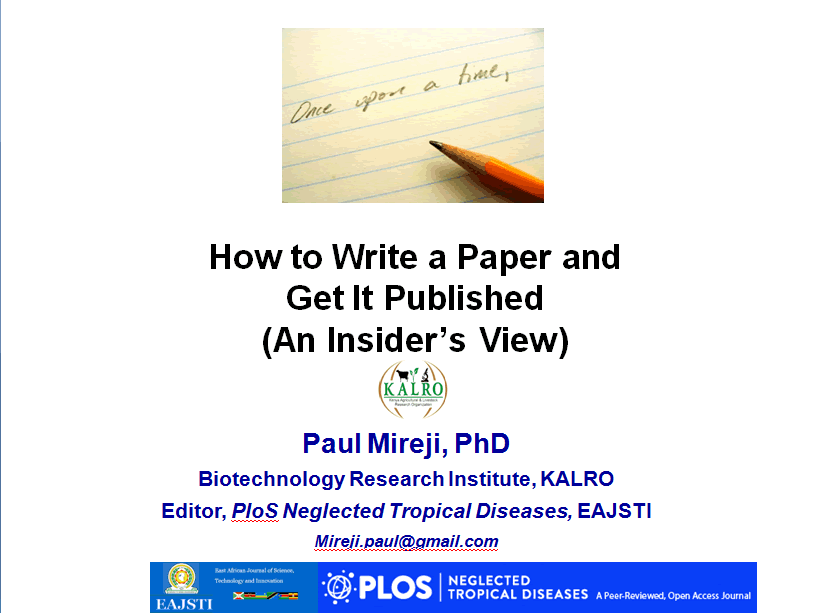Dr. Eija Laitinen, PBL-BioAfrica Project Manager and Principal Research Scientist from HAMK Bio Research Lab paid courtesy call to the Vice-Chancellor to further discuss the engagement of our institution as a partner of the PLB-BioAfrica Project.
PBL-BioAfrica is a collaborative project for strengthening bioeconomy education through promoting (problem-based learning), entrepreneurship, innovation and digital learning methods in Sub Saharan Africa.
The four-year-old project kicked off in November, 2021 and the digital learning and teaching will enable the teams to reach a large of young Africans. SEKU is one of the partner institutions in the project.
Dr. Eija also toured the university and held a meeting with the SEKU Project Team to get updates on the project management, trainings and student challenges among others.

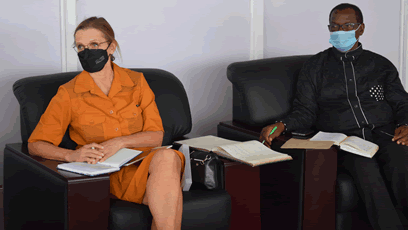
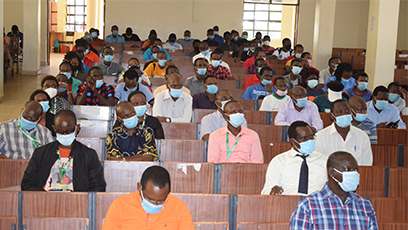
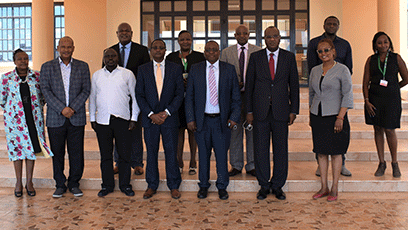
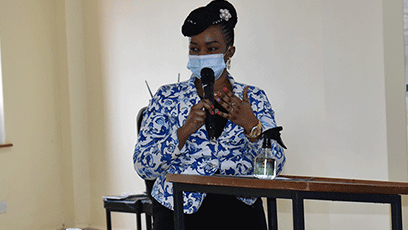
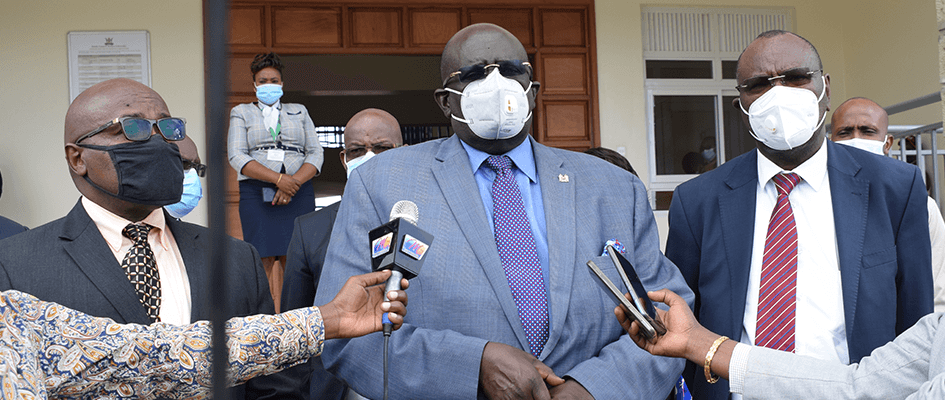
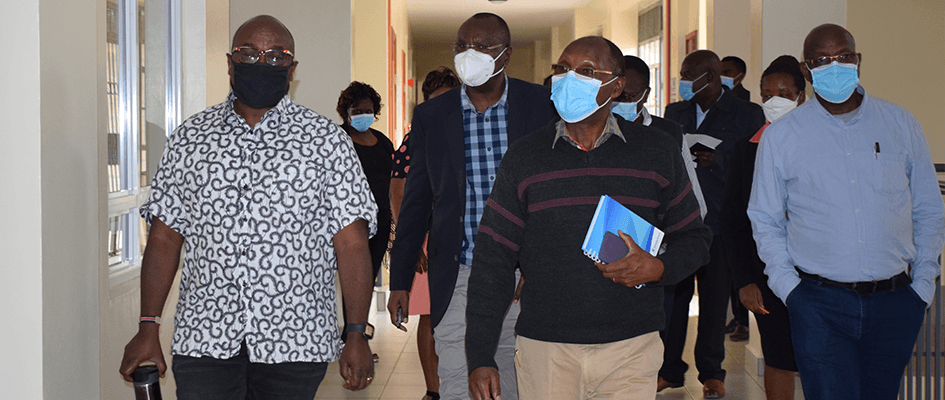
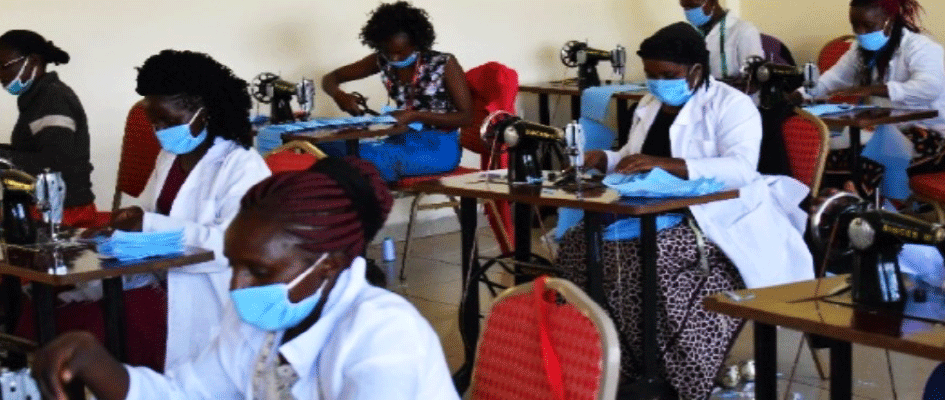
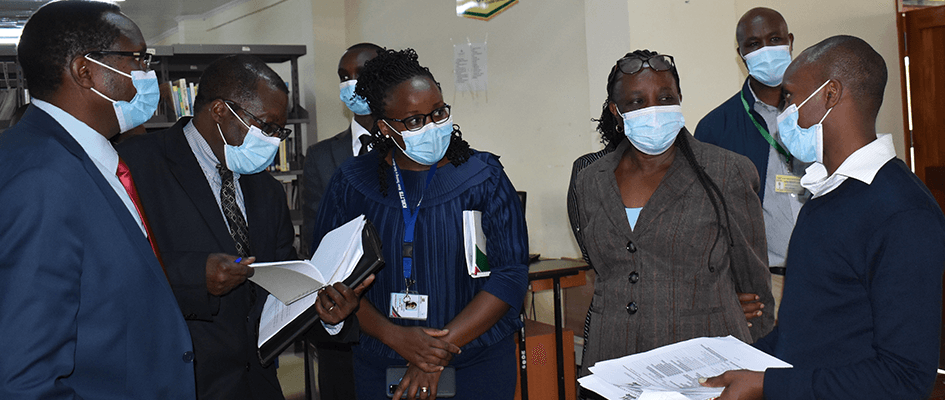
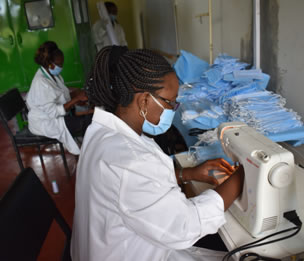 The Clothing and Textile Department has been working tirelessly to produce the masks with some of them already in use by members of staff.The disposable masks create a physical barrier between the mouth and nose of the wearer and contaminants in the immediate environment.
The Clothing and Textile Department has been working tirelessly to produce the masks with some of them already in use by members of staff.The disposable masks create a physical barrier between the mouth and nose of the wearer and contaminants in the immediate environment. 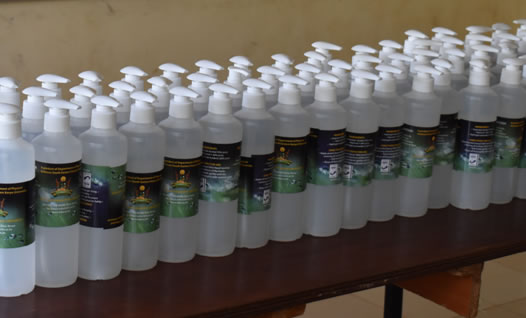 The masks, which are made from non-woven fabric, light poly-poplin and medium poly-poplin fabric, with non-woven strip, will be used by the staff of the University with a surplus for supply to the surrounding community.
The masks, which are made from non-woven fabric, light poly-poplin and medium poly-poplin fabric, with non-woven strip, will be used by the staff of the University with a surplus for supply to the surrounding community. 